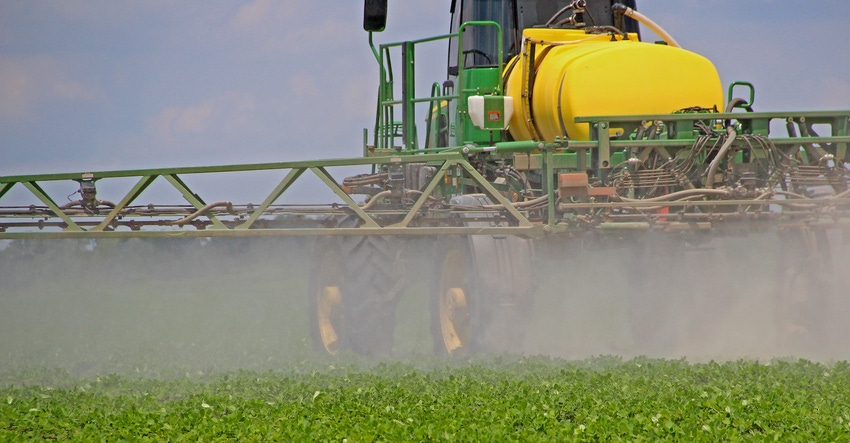
Insecticides are not immune to the supply chain challenges that have plagued herbicides and other agricultural inputs this season. Whether caused by growers stocking up before planting began or longer lags in delivery times, producers across the Midsouth have already expressed concerns about obtaining key products to manage crop pests.
“Currently, the situation with insecticides is not quite as bad as the herbicide shortage,” said Sebe Brown, Extension entomologist with the University of Tennessee Institute of Agriculture, “but I think growers need to be prepared to adjust their pest management strategies if needed as we move through the season.”
“I’ve spoken with many retailers and suppliers who have assured me they are ready to meet demand,” he continued. “They are confident their products will get in the hands of growers, but with the supply chain obstacles we’re continuing to see, producers should have a Plan B ready.”
As Brown has fielded calls on thrips management this spring, he has spoken with growers and consultants who have reported having trouble finding Intrepid Edge — an insecticide that controls a broad range of pests, including thrips in cotton. He has recommended Bidrin and Orthene — potentially less effective products due to resistance as an alternative. Although Brown said there were reports in May of those products being in short supply as well.
Then there is the issue of increased costs. Perhaps you can find the insecticide you need, only to find it no longer fits your budget. As we move into the heart of the growing season, we asked Brown what options cotton farmers have if key insecticides are hard to find or more costly than anticipated.
Plant bugs/worms
When it comes to managing plant bugs, Brown describes Transform and Diamond as the “work horses.��”
“I have no reason to believe those products won’t get where they need to be, but if they do get short that will really put a kink in the gears. There are limited alternatives for these products for controlling plant bugs,” he said.
If farmers should have trouble sourcing Transform or Diamond during early plant bug migration, Brown says one option is to move to other chemistries such as Centric or Vydate then transition to Orthene or Bidrin.
“These older, harsher chemistries are not a perfect solution, particularly considering their potential to flare secondary pests, such as spider mites and aphids,” he said, “but they are the next best option should growers see delays in getting Transform or Diamond.”
“For worms, if growers of Bollgard 2 cotton are having trouble finding diamide insecticides, I would recommend switching to something like Intrepid Edge or Orthene plus a pyrethroid but these options have limitations and won’t provide diamide level control or residual,” he added.
IPM Principles
Although costs of crop inputs are continuing to rise, Brown encourages farmers to keep in mind that the value of their crops has also risen. For some growers it may be the most valuable crop they’ve ever grown considering current commodity prices.
“We need to continue following sound IPM principles for insect management. You need to be justified to cross ground with a spray application, but don’t just consider insecticide cost or cost of diesel. Consider what the crop is potentially worth and your yield potential,” he said.
“We all want to save money, but sometimes in an effort to cut cost you can create more problems than you solve,” he added.
“You don’t want to spray a field before reaching threshold, but if your fields are spread across the county and it takes a while to spray it all, be early. That’s also IPM. Addressing pests before they become a bigger issue.”
Insecticide washoffs are one common cause of waste that Brown sees.
“I see so much money wasted on washoffs. That causes more repeated trips across the field,” he said. “It’s hard to predict these summer showers that pop up in our area. But keep an eye on the weather and keep in mind if the product you are applying requires an extended rain fast period. Avoiding washoffs is one way to save on extra trips across the field.”
About the Author(s)
You May Also Like






